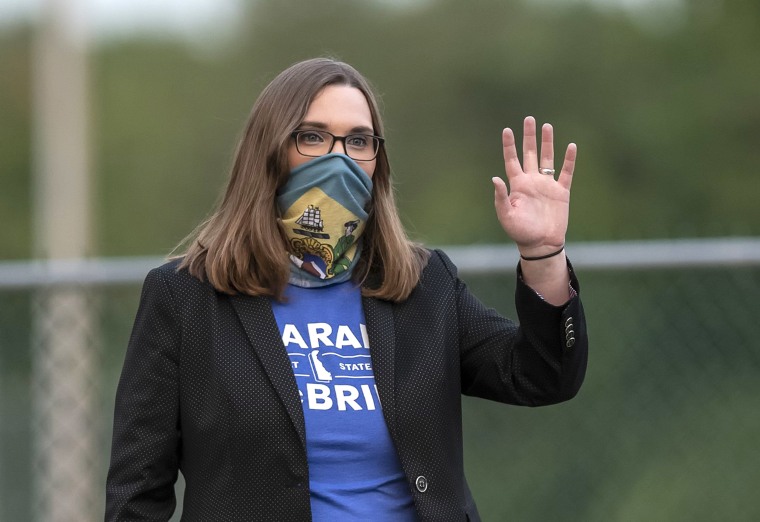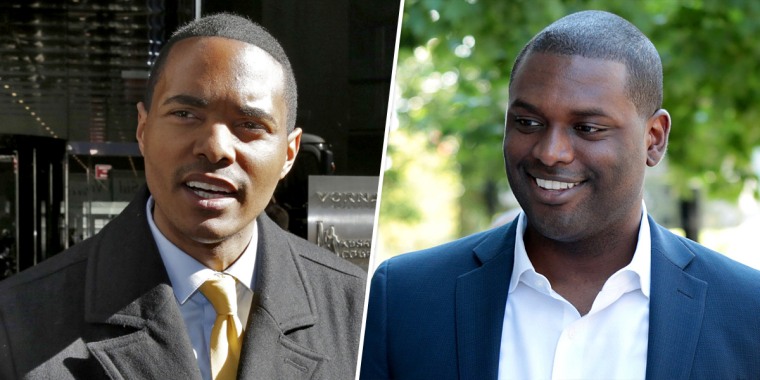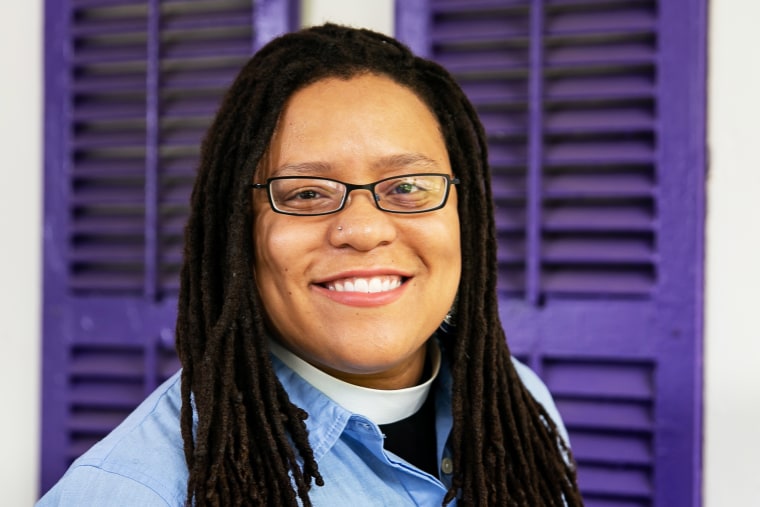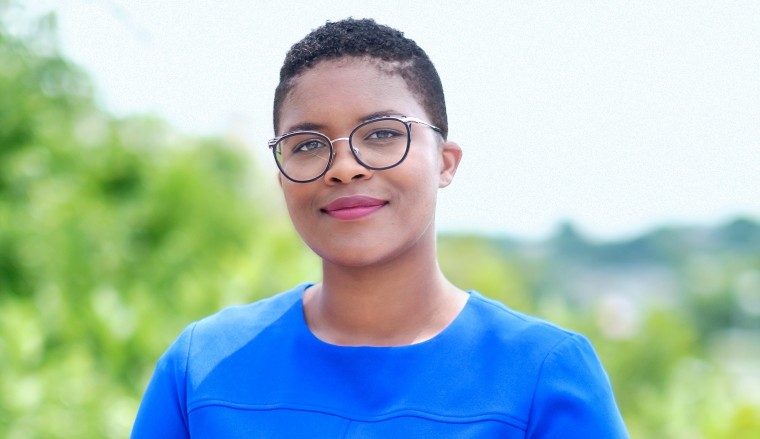November 2020 was the strongest showing for LGBTQ candidates in history, and the candidate pool was likely the most diverse in terms of race, sexual orientation and gender identity, according to new research.
This election cycle, more than 1,000 LGBTQ Americans ran for office, and as of this week, 334 of the 782 known general election candidates won their November races, according to data compiled by the LGBTQ Victory Fund, a group that trains, supports and advocates for queer candidates. Overall, 43 percent of LGBTQ candidates who made it to the general election won their races.
“In one of the most vitriolic and unprecedented election cycles of our time, LGBTQ candidates continue winning elections in numbers and in parts of the country thought unthinkable a decade or two ago,” Annise Parker, president of LGBTQ Victory Fund and the former mayor of Houston, said .
Sexual orientation and gender identity
Lesbian candidates were the most likely to triumph at the ballot box last month, with over 55 percent claiming victory. Gay candidates won 41.5 percent of their races, and queer-identified candidates won 40 precent. Pansexual candidates, while there were only 17 in total, won 35 percent of their races. Bisexual candidates won a third of their races, and the two asexual candidates who appeared on the ballot last month did not win their races.
"LGBTQ people span every community — we are people of color, women, immigrants and people with disabilities — and we are able to use that life experience to connect with voters from many backgrounds."
Annise Parker, LGBTQ Victory Fund
Cisgender men made up the largest proportion of LGBTQ candidates. However, cisgender women were much more likely to win. Cisgender women — including lesbian, bisexual and queer candidates — won 50 percent of their races compared to 39 percent of their cisgender male counterparts.
Before Danica Roem’s historic victory in 2017, there were no openly transgender state representatives, and prior to November’s election, the total stood at just four.When all of the 2020 election’s winners are seated, the total will be brought to nine.
Overall, 17 percent of trans men won their races and 37 percent of trans women won their races for office.
Sarah McBride, a Delaware Democrat, is among November’s most high-profile election winners. She made history as the first transgender person elected to a state Senate and is now the country’s highest-ranking transgender elected official.

Stephanie Byers, a member of the Native American Chickasaw Nation, is another notable winner. She won her race for Kansas House of Representatives, becoming the first transgender woman of color elected to any state legislature in the U.S.
Only four gender-nonconforming candidates ran in 2020. Joshua Query, an incumbent legislator in New Hampshire, was the only one to win their election.
More people than ever before who openly identify as genderqueer and nonbinary ran for office — 13 candidates — and 31 percent of them won, according to Victory Fund data. Among them is Mauree Turner, who won a seat in the Oklahoma House of Representatives, becoming the first nonbinary person elected to any state’s legislature.
Party affiliation and office
While LGBTQ candidates made history at all levels of government, they had the hardest time clinching victory in statewide offices, with all 10 of those candidates losing their elections.
At the federal level, only nine of the 63 candidates who ran won their elections. However, at least two of the winners made U.S. history: Ritchie Torres and Mondaire Jones, both New York Democrats, became the first openly gay Black Americans every elected to Congress.

A little more than a quarter of the candidates who ran for mayor won. Among them is Todd Gloria, who became the first LGBTQ person elected mayor of San Diego. Gloria joins Chicago’s Lori Lightfoot as the only gay people of color holding mayorships in major U.S. cities.
LGBTQ candidates fared much better running for other local offices, with a nearly 50 percent success rate. They also did well running for state legislatures, where they won 42.5 percent of the time. They fared the best in judicial races, with a 57 percent success rate.
LGBTQ candidates are significantly more likely to run as Democrats (77 percent) than Republicans (2 percent), and queer Democrats had a better showing at the ballot box, with 41.5 percent of them prevailing, compared to 37 percent of those who ran as Republicans.
Gay Republican Eddie Mannis was among the nonincumbent GOP winners, winning a seat the Tennessee House of Representatives last month. He will join several Republican lawmakers who just won re-election, including Tom Hannegan of Missouri, Jason Elliot of South Carolina and Dan Zwonitzer of Wyoming, who has played a vital role in preventing the passage of anti-LGBTQ legislation in that state.
Incumbents fared significantly better than nonincumbents, with 84 percent winning their races compared to 27 percent.
Race and ethnicity
The LGBTQ candidate pool in 2020 was the most racially diverse in U.S. history, according to Victory Fund data. The majority of LGBTQ candidates who ran for office in 2020 were white, and just under 42 percent of them won their races, compared to 36 percent of LGBTQ candidates of color. Breaking this down further, Black LGBTQ candidates won nearly 40 percent of their races and Latinx candidates won 54 percent.
Among the Black LGBTQ election winners were several history-makers, including Kim Jackson, an Episcopal priest in Atlanta, who became the first Black lesbian elected to Georgia’s state Senate, and Tiara Mack, who became the first Black LGBTQ person elected to Rhode Island’s state Senate.

More than 57 percent of the Native American and Alaska Native LGBTQ candidates won their elections, and one out of two Arab American or Middle Eastern LGBTQ candidates emerged victorious. Nearly 36 percent of LGBTQ candidates who identify as Asian and Asian Pacific Islander won their elections.
In Hawaii, Adrian Tam became the first openly gay Asian American representative in the state, beating his opponent Nicholas Ochs, a leader of the local chapter of the far-right group Proud Boys.
“LGBTQ people span every community — we are people of color, women, immigrants and people with disabilities — and we are able to use that life experience to connect with voters from many backgrounds,” Parker said. “This beautiful diversity provides an opportunity to connect on some level with every single voter in America. That is the reason LGBTQ candidates are winning in unprecedented numbers, and this will only accelerate in the years ahead.”
